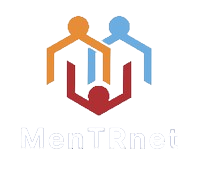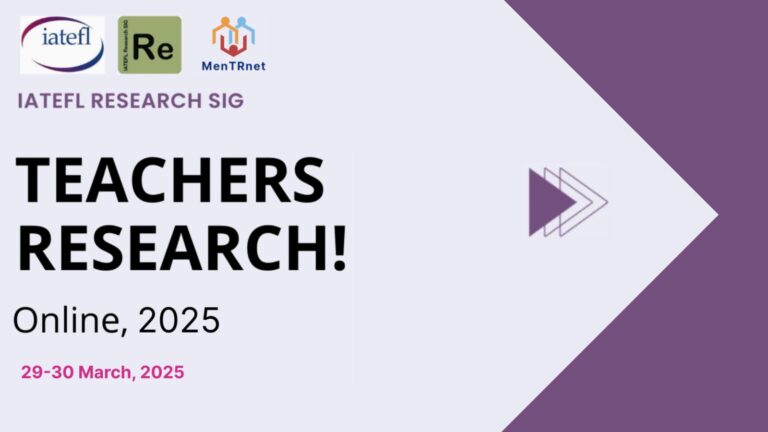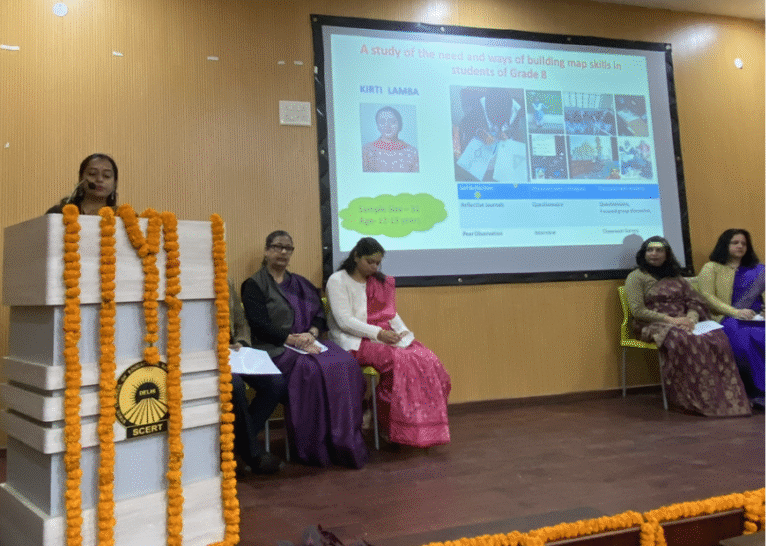
While navigating my journey from a teacher to a researcher, and from a researcher to a research mentor, I uncovered some profound personal insights. Each phase of the transition not only reshaped my approach to mentoring in action research, but also challenged my assumptions. In this blog post, I share some of these insights.
Breaking hierarchies through ‘Mentoreciprocity’
I often wondered if the learning process in a mentor-mentee relationship was one-directional, with only the mentee gaining insights from the mentor. Or is it possible that mentors too can learn from their mentees? Through my engagement with the process, I came to realise that action research is of a non-hierarchical nature. Mutual learning flattens the hierarchy. This realization transformed my mentoring approach; I now actively seek input from my mentees and encourage them to share their insights and experiences, creating a continuous cycle of reciprocal learning, which enriches both parties.
Mentorship beyond boundaries: transcending disciplines and cultures
When I was conducting action research under an initiative led by SCERT (State Council of Educational Research and Training), Delhi, India, I was mentored by a primary level English teacher from a private school. As a government school social science teacher, I initially had doubts about whether she could fully understand my classroom context. I wondered if differences in subject expertise and classroom context would create barriers in our collaboration. However, as we brainstormed and navigated the process smoothly together, I realized that mentorship can transcend subject boundaries.
Similarly, on becoming a mentor, my scepticism about cross-disciplinary mentorship was challenged when I collaborated with mentees from different subject areas. I learnt to embrace the diversity of perspectives in my mentoring approach. Understanding the differences in teaching contexts, whether shaped by subject, school setting, or socio-economic backgrounds, enriches both my own practice and that of my mentees.
In fact, this revelation led me to wonder about the feasibility of cross-cultural mentoring as well. After I completed EVO (Electronic Village Online) 2024 on Mentoring Teacher Research, where I was paired with an educator from another country and subject, we explored how cultural narratives influence our understandings, leading to innovative insights that neither of us could have achieved alone. Differences in communication styles, cultural misunderstandings, and varying expectations can create barriers to effective mentorship. However, these challenges offer valuable learning opportunities. Thus, my journey of revelations took another course, deepening my understanding of mentoring as an adaptive and boundary-transcending process.
The mindset of resourcefulness in action research
I initially had a misconception that action research requires significant financial, material, or technological resources which deter teachers from resource-constrained settings, like government schools, from engaging in it.
However, through my journey, I discovered that action research thrives on creativity and a resourceful mindset. It isn’t the budget that matters, but the willingness to think outside the box. As I learned to leverage existing resources creatively, I began to encourage my mentees to utilize free digital tools, community resources and AI tools, which not only made their projects feasible, but also made the process cost-effective, and engaging as well as empowering. I got an opportunity to present at the IATEFL Research SIG online conference Teachers Research! Online 2023. Participating in this event further reaffirmed my belief in the resourcefulness essential for action research.
Numerical STATiSfaction vs. Insightful reflection
I used to think that action research requires extensive quantitative data and complex statistical analysis. This belief makes it feel intimidating and limits our ability to capture the full spectrum of student learning and engagement.
I encourage mentees to explore whether qualitative insights—gained from observations, interviews, and narratives— might be as valuable as numerical data. For instance, I reassure them about the value of observations, students’ feedback, reflective journals and other qualitative methods. By sharing my own journey of overcoming data-related fears, I help mentees gain confidence in using diverse methods to capture meaningful changes in their classrooms.
Syllabus completion vs. Action Research: tool or hindrance
One of my initial concerns was that conducting, as well as mentoring, action research was time and effort consuming.
However, I gradually realized that action research doesn’t have to be an additional burden— it can be seamlessly integrated into day-to-day teaching. I now reassure my mentees that action research not only helps in addressing a classroom issue, but also enriches classroom teaching learning strategies.
I guide mentees to weave classroom research into their lesson plans, so that they realize that syllabus completion and action research are not conflicting priorities, but complementary processes.
Adaptability vs rigidity
I initially assumed that action research followed a rigid, linear cycle: plan, act, observe, and reflect. Through my experiences, I discovered that while action research provides a guiding framework, unexpected challenges – like sudden school closures – required me to adapt the sequence or revisit earlier steps. For instance, I had to pause the action phase and return to planning when the school was shut due to Covid-19.
Similarly, one of the mentees had to change the research question; another had to shift to online collection of data due to a pollution outbreak; another had to change the sample due to her transfer to another school. These deviations are overwhelming initially, but resilience and flexibility are at the core of the process of action research. Disruptions may occur, but the show must go on!
Fine line between handholding and autonomy
A mentor’s dilemma is when to support and when to step back. Striking the right balance in mentoring comes with experience. It has rightly been said that ‘the best mentorship empowers, not overpowers’.
Scaffolding in mentorship is comparable to teaching someone to ride a bicycle — starting with constant guidance and support from the mentor, then gradually gaining independence, to finally riding solo with confidence. A good mentor knows when to hold on, when to let go, and when to step in just enough to keep the journey smooth.
The unveiling of these revelations served as an eyeopener for me, empowering my journey as a teacher, researcher and mentor.
About the Author(s)

Kirti Lamba
Kirti Lamba is a Trained Graduate Social Science teacher at SKV Adarsh Nagar, Delhi, India. She has actively engaged in the SCERT (State Council of Educational Research and Training) action research initiative, Praxis. She was an IATEFL online presenter in 2023.She further enriched her mentoring skills by completing EVO (Electronic Village Online) 2024’s session on Mentoring Teacher-Research. As an active MenTRnet member, she also contributes to the ‘AI-in-Mentoring’ Special Interest Group (SIG), an initiative of MenTRnet.



Kirti, this blog was so great to read. As a mentor who nudges people to take on AR or EAR projects, it’s wonderful to see that both kinds of practitioner research can be carried out without overburdening ourselves. I also appreciate a lot what you are saying about the reciprocal nature of mentoring. It wasn’t that long ago when I was doubtful that a mentee can be an equal partner in a mentor-mentee relationship, because I thought that a more experienced teacher-research mentor will necessarily invest more in the project. But in the past couple of years I have found that my mentees are creative and resilient educators who bring so much to the table. I am learning a lot about their context and I’m learning a lot about my own mentoring skills, what works and what doesn’t. Good of you to have reminded us about this aspect and, as I highlighted above, the personal and professional gains of carrying out and/or mentoring teacher-research.
Thank you for your encouraging words ma’am.